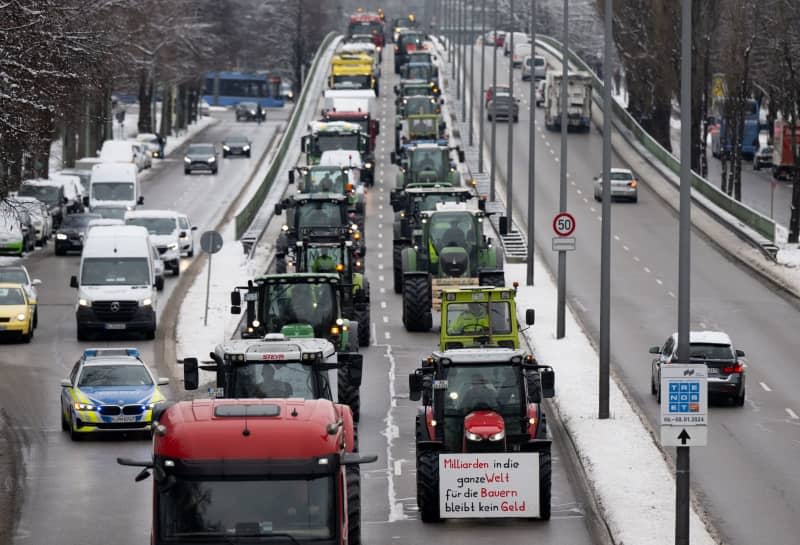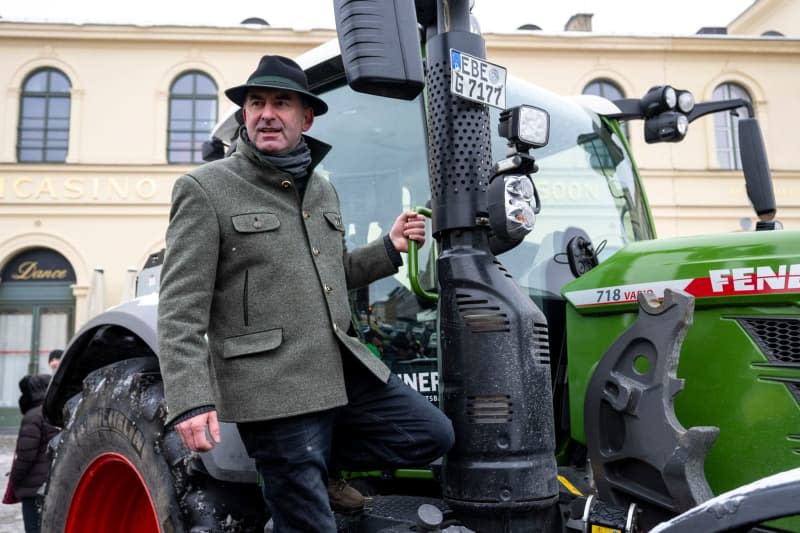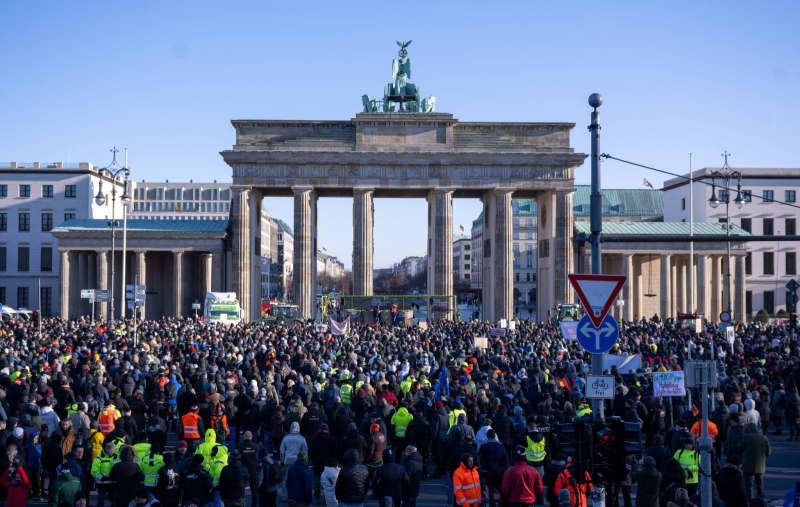Farmers' tractor protests cause chaos across Germany amid budget cuts

- Oops!Something went wrong.Please try again later.
German farmers caused nationwide disruptions on Monday as they kicked off a week of protests against agricultural subsidy cuts, with worries about extremists hijacking the demonstrations growing.
Long convoys of tractors and lorries rolled through cities and dozens of motorway access roads were blocked, police reported.
At the Brandenburg Gate in Berlin, police counted around 700 vehicles, while in Erfurt they spoke of more than 2,000. According to the Interior Ministry in Stuttgart, around 25,000 vehicles took part in 270 actions in the state of Baden-Württemberg.
The Farmers' Association had called for a week of action to demonstrate against the cancellation of subsidies for the sector. The main issue is the tax concessions for agricultural diesel.
A partial cancellation of the government's savings plans did not placate the association.
"They are robbing agriculture of its future viability. Above all, we are ultimately jeopardizing the secure supply of high-quality domestic food," the head of the association Joachim Rukwied said on RBB-Inforadio on Monday morning.
"We are hoping that the Berlin government will see reason and that this disproportionate burden on agriculture will be reduced. That is our core objective at the demonstrations."
German Vice Chancellor Robert Habeck warned about the farmers' protests being hijacked by extreme forces and called for democracy to be protected.
"There are calls circulating with fantasies of a coup. Extremist groups are forming, nationalist symbols are being openly displayed," he said in a statement on social media on Monday.
"It is becoming clear that something has started to slip in recent years, which is limiting legitimate democratic protest and freedom of expression," he added.
Last Thursday, hundreds of angry protesters prevented Habeck from leaving a ferry on a North Sea island by blocking the jetty.
The protests are set to continue in the coming days, albeit not on the same scale as on Monday.
The week of action is to culminate in a large demonstration in Berlin next Monday. A total of 10,000 participants have been registered for this and expected to arrive with thousands of tractors.
Meanwhile, the German government launched several measures from its 2024 budget savings package, including the highly controversial subsidy cuts for the agricultural industry.
The tax cuts for agricultural diesel are to be gradually abolished, the coalition confirmed. "In particular, this represents a contribution to the reduction of climate-damaging subsidies," the draft states.
The fuel subsidy currently allows farmers to buy agricultural diesel at a tax rate of 25.56 cents per litre compared to the full rate of 47.04 cents.
According to the government, the rate of fuel relief for farmers will now be reduced by 40% in 2024. In 2025 and 2026, there will be a further annual reduction of 30%, meaning that there will no longer be a subsidy in 2026.
The cuts were part of a package of measures intended to plug a multi-billion euro gap in the government budget following a landmark top court ruling at the end of last year that sent the coalition's financial plans into disarray.
But the original plans, presented in December, had triggered massive protests from farmers and were also controversial within the coalition of the Social Democrats (SPD), Greens and pro-business Free Democrats (FDP).



